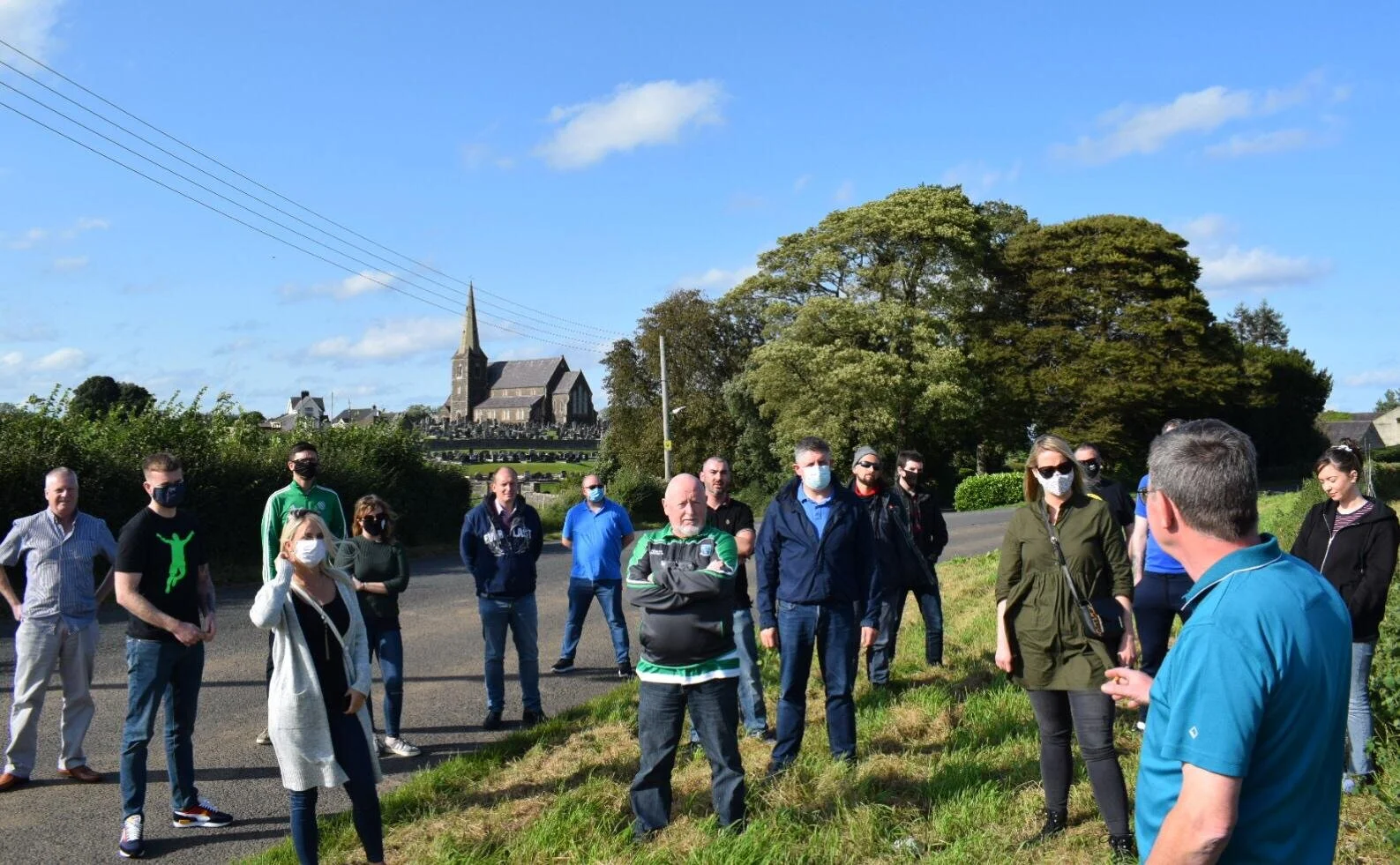Report - Éirígí Activists Political Tour Of Garvaghy Road
A group of twenty Éirígí members and supporters took part in a political tour of the Garvaghy Road in Portadown on Sunday (September 13th). The event was organised to mark the 25th anniversary of the first major standoff between residents and the Orange Order / British state in 1995.
The day began with Breandán Mac Cionnaith (Éirígí activists and spokesperson for the Garvaghy Road Residents Coalition) explaining the historic background to the emergence of the Orange Order as a sectarian bulwark for British rule in Ireland in the 1790s.
Tour begins at the Portadown end of the Garvaghy Road.
Given their close proximity to the birthplace of the Orange Order, the Catholic community of Portadown have long endured sectarian violence. As far back as 1795 a Reverand Devine used the opportunity of a religious service in Drumcree Church to inspire his congregation into an anti-Catholic frenzy, later described by the historian Francis Plowden,
“…worked up the minds of his audience, that upon retiring from service…they gave full scope to the anti-papistical zeal, with which he had inspired them; falling upon every Catholic they met, beating and bruising them without provocation or distinction, breaking the doors and windows of their houses, and actually murdering two unoffending Catholics in a bog.”
Along the route that sectarian marches used to take from Drumcree Church (in background) to the Garvaghy Road.
This combination of incendiary anti-Catholic rhetoric and violence set the tone for the following 203 years, during which time the Catholic community of Portadown were forced to endure regular sectarian marches through their community - marches which were routinely accompanied by murderous violence.
It took three successive years of mass community resistance in 1995, 1996 and 1997 to finally bring an end to the sectarian marches in 1998. During those years the full force of the Orange and British states were brought to bear on an isolated nationalist community of just three thousand men, women and children.
By day it was Britain’s official forces that attacked the community with batons and plastic bullets. By night it was Britain’s unofficial death squads that roamed Portadown and the wider Six Counties looking for vulnerable Catholics to murder. But in the end, the dignified, unflinching determination of the Garvaghy Road community won out.
Anti-sectarianism has been one of the key pillars of Irish republicanism for over 220 years. From the time of the Fenian’s rebellion of 1867, we republicans have been explicitly calling for the “complete separation of Church and State”.
The false division between Catholic and Protestant that has been so carefully fostered by the British and Irish political establishments for centuries will only be finally ended when Ireland is re-united in a secular all-Ireland Republic - a Republic that will protect individual religious freedoms while treating all citizens as equal regardless of their religious beliefs.
The false religious divisions of the past can only be fully healed through the creation of a secular all-Ireland Republic.
Éirígí understands that we can only move forward to a better, future Ireland by fully understanding the forces that shaped the Ireland of yesterday and today. We thus place a great importance on working together to increase our collective knowledge and understanding of Ireland’s past in general and our revolutionary past in particular.
When this understanding of Ireland’s past with is combined with an understanding of the political, economic, cultural and social forces that are shaping Ireland and the wider world today, it becomes possible to map out the path to a new all-Ireland Republic based on the principles of liberty, equality, community, democracy and justice.
If you are interested in joining Éirígí and working with like minded people to build that New Republic you can get in touch here.




